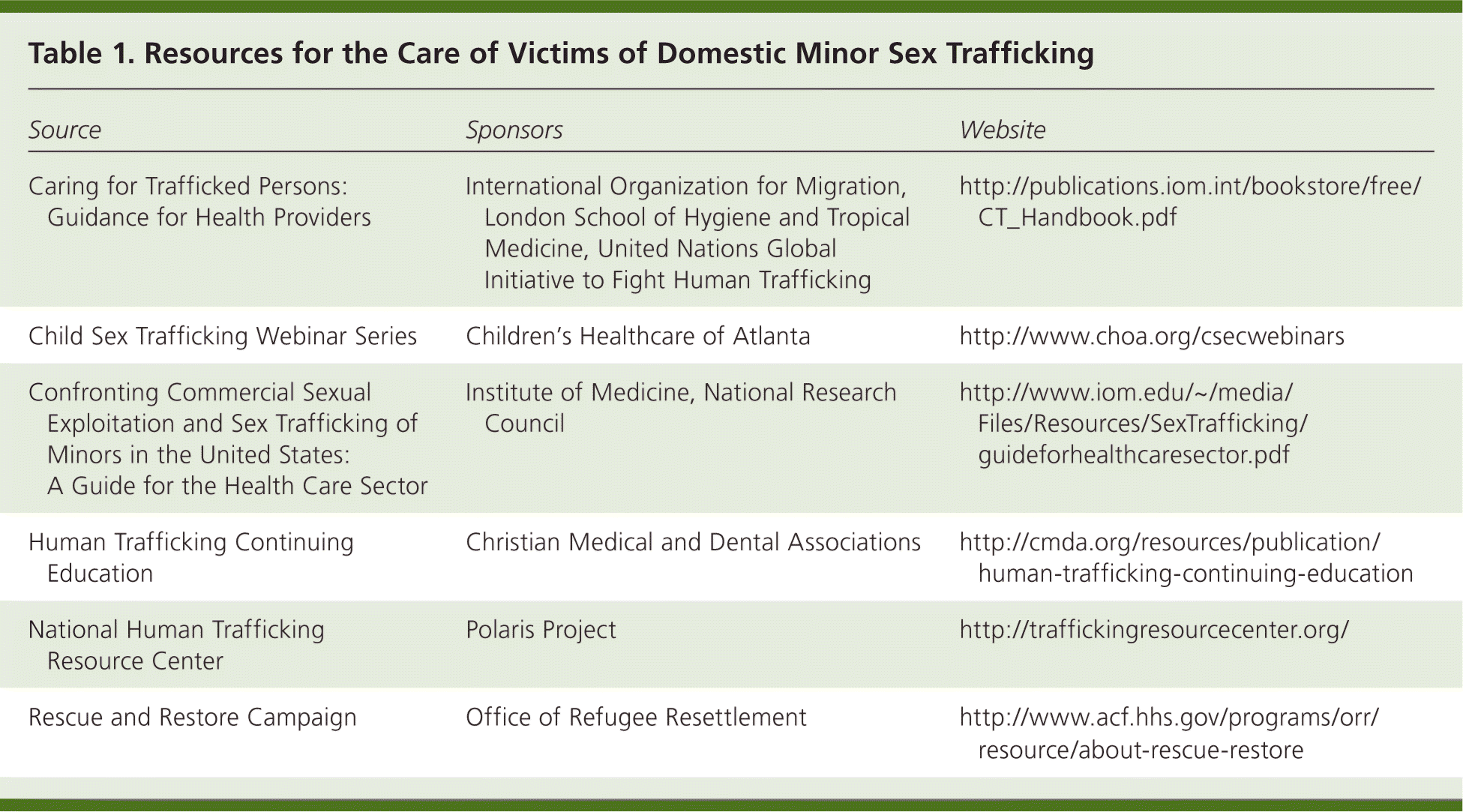
Am Fam Physician. 2015;91(10):674-676
Original article: Caring for Unaccompanied Minors from Central America [Curbside Consultation]
Issue date: November 1, 2014
Available online at: https://www.aafp.org/afp/2014/1101/p656.html
to the editor: We read with great interest the commentary describing challenges associated with caring for unaccompanied minors from Central America. The considerations also inform the care of minors involved in human trafficking, specifically domestic minor sex trafficking (DMST), who may also seek care from family physicians.
According to the Office of Refugee Resettlement, unaccompanied minors are especially vulnerable to sexual violence, exploitation, and trafficking.1 Defined by the Victims of Trafficking and Violence Protection Act of 2000 as a “severe form of trafficking in persons,”2 DMST, in which minors are forced to participate in prostitution, pornography, or erotic entertainment, is one of the most common forms of human trafficking in the United States.3 A significant difference between the care of these patients and other unaccompanied minors is that the former requires an additional, crucial step: identification.
Minors who are exploited by DMST are not likely to disclose their status, especially while still being trafficked, which makes it difficult for clinicians to identify these patients when they present for care. Two studies found that 28% to 50% of trafficking survivors reported health care system encounters while they were being exploited.4 The National Center for Missing and Exploited Children conservatively estimates at least 100,000 children are exploited by DMST each year.5 Such numbers represent many missed opportunities to identify, care for, and potentially assist in freeing minors from this form of slavery.
Family physicians can prepare to recognize and care for this vulnerable, neglected population by utilizing suggested resources for general information and continuing education in Table 1. In doing so, to echo Drs. Bishop and Ramirez, we can help bring these patients “out of the shadows.”

| Source | Sponsors | Website |
|---|---|---|
| Caring for Trafficked Persons: Guidance for Health Providers | International Organization for Migration, London School of Hygiene and Tropical Medicine, United Nations Global Initiative to Fight Human Trafficking | http://publications.iom.int/bookstore/free/CT_Handbook.pdf |
| Child Sex Trafficking Webinar Series | Children's Healthcare of Atlanta | http://www.choa.org/csecwebinars |
| Confronting Commercial Sexual Exploitation and Sex Trafficking of Minors in the United States: A Guide for the Health Care Sector | Institute of Medicine, National Research Council | http://www.iom.edu/~/media/Files/Resources/SexTrafficking/guideforhealthcaresector.pdf |
| Human Trafficking Continuing Education | Christian Medical and Dental Associations | http://cmda.org/resources/publication/human-trafficking-continuing-education |
| National Human Trafficking Resource Center | Polaris Project | http://traffickingresourcecenter.org/ |
| Rescue and Restore Campaign | Office of Refugee Resettlement | http://www.acf.hhs.gov/programs/orr/resource/about-rescue-restore |
